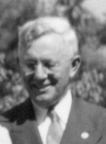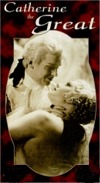The Log of “Jason” Glasscock
of His Voyage of
Search for the Golden Fleece
(Part 4: April 30, 1934)
by Wilmer Newton Glasscock

Jan 1878 - Apr 1965

A 6:30 call, and I am off to New York on the 8:00 o’clock Pennsylvania train. Now I can see this country from the ground. Of course, from a railroad train one sees tin cans, trash and cinder piles, back yards and brick walls and the older and poorer parts of cities. We pass through Baltimore, Wilmington and Philadelphia; then through Trenton, New Brunswick, Elizabeth, Newark, and then we arrive at the Pennsylvania Station on 33rd Street, in New York.
It is 12:30, noon, and I tell the taxi man, “To the Waldorf-Astoria.” Mr. Kaiser had introduced me to the Washington representative of the Waldorf-Astoria, and I seemed obliged to agree to go there because he insisted that I take a note of introduction when I was ready to go. Kaiser has told me he occupied a $12.00 per day room, and his meals averaged about $3.00 each. However, one can eat cheaper in the Grill than in the main dining room, and Debnam (the W-A representative) will see that you are given a cheaper room. So it was with misgivings, but with a sense of obligation that I determined to go to this hotel. And, too, I failed to get the letter of introduction.
The taxi swept right into the middle of the building instead of stopping at the curb. But that is the way it is built. The elevator takes me to the main floor. I step up to the desk. One of the two room clerks is busy and the other one is answering the telephone, but a young man in uniform, and with a light of friendliness on his face, who has been standing nearby, steps one step, and asks, “Can I help you, sir?” “I want to register,” I reply. “The clerk will be available in just a moment, sir,” the young man says, and takes one step back to his post. (That is good. I am not allowed an instant’s anxiety or uncertainty.)
The clerk, having put down the telephone, looks at me and says pleasantly, “What can I do for you?” I reply, “Mr. Debnam wanted to give me a letter of introduction, but I came off from Washington without it.” He said, “Oh, you met Mr. Debnam. Good. What kind of a room do you want? We have them from $5.00 up.” “Give me a $5.00 room,” I replied. He writes my name on a slip of paper and hands it to the uniformed man, who has stepped up and taken possession of my brief case, (which does not contain valuable papers, but pajamas, toothbrush, etc.). The young man looks about the lobby as we step away from the desk and asks me if I will kindly wait here just a moment. He steps out of sight but within ten seconds or so comes back with a very business-like man who presents his hand in greeting and says that he is Mr. Farrell, the Credit Manager. He looks me squarely in the face and says, host-like, “We are very glad to have you stay with us. I hope you will enjoy the hotel.” As we go to the elevator I remark to the young man, “I have never been greeted that way in a hotel before. Just what was back of the proceeding?” He answered, “You had no luggage, sir, and I had to get the Credit Manager’s O.K. before taking you to your room.” “But, I will be glad to pay in advance, if that will be better,” I responded. He said, “That is not necessary, as he approved.” I have room 1305, and it is far more of a room for $5.00 than I am getting at the Mayflower for the same price. The reason is Washington is overfull with visitors.
I had just finished washing my hands and face when the door buzzer sounded. “Can Mayor La Guardia have found out already?” I queried myself, in an effort to be funny. The young man at the door hands me his card and introduces himself as Mr. Miller, the Assistant Credit Manager, and asks whether he may come in. “Certainly, do,” I say. He asks me to place my signature on this card and my home address and a bank reference. While I am doing so, he remarks, “You are in the title business in California?” I turn and smile at him and answer, “Yes.” “But I am certainly interested to know how you found it out.” He replied somewhat cryptically, “We hotel people have ways of keeping track of people. It is necessary. For example, your signature on that card will enable us to discover any attempted forgery of your name.” Then I ask him whether they did not check me up in the Banker’s Directory or in the Directory of Directors. He nodded and said, “Yes.” He tells me he came from San Diego and knew of the Forward Brothers and voted for John for Mayor, etc.
This [quality of service] is interesting and intriguing to me. Already I realize there is a finely and thoroughly trained organization operating this hotel. Here I am, an entire stranger, identified, singled out, and already made to feel that I am an honored guest. Afterward I observe that the women floor clerks address me as “Mr. Glasscock.” Thus I am made to feel that I am not a mere unknown whom they have to watch as I go in and out, but that I belong. It is surely a very splendid organization around an idea. There is absolutely nothing “snooty” about the place, as I had supposed there would be. I am going to try to take this idea home to the office. If our organization could be trained into a standard method of meeting the public, so we would all do teamwork, and each person give the same fine impression to our clients, the results would be immeasurable, and it would be profitable. We must study and plan for it.
It is after two o’clock, and I telephone to Mr. Penhale’s office at Standard Statistics Company. He is out, but I arrange with his secretary to be at their office after 11:00 tomorrow. Then I telephone to the office of Moncure March, Attorney in the Real Estate Loan Department of the Equitable Life Assurance Company of the U.S.A. He is out, but I arrange with his secretary to be there at 9:45 tomorrow. So I go out on the street and walk down to the Rockefeller center, about which I have read so much. Three of the four units are completed. The basement for the fourth unit is being dug and blasted out. I discover that here is the display of work of American artists that I have read about -- that is, some American artists. All but one or two out of a hundred pictures are hideous, ugly, grotesque, base. If, as these artists say, that is the way they see things, either they seek out ugliness and baseness to depict, or their minds are debased and perverted. But, of course, I have only a tiny speck of knowledge or understanding upon such matters. There are many vacant store rooms, but in most instances the window space is used for a display of goods which may be bought in a near-by store.

After dinner I conclude to see the picture “Catherine the Great” at Loew’s across the street. I’ve read and heard much about it. It is good, all right. So is Walt Disney’s Mickey Mouse. [He saw the 1934 version of “Catherine the Great,” a British film starring Douglas Fairbanks Jr. and Elisabeth Bergner. Hollywood cast Catherine Zeta-Jones as the empress in the 1995 movie of the same name.]